Ingredient present in the Hepcinat 400mg
Hepcinat 400 mg is an anti-viral drug that is commonly used to treat chronic hepatitis C virus (HCV)- infection. This molecule is the active component of sofosbuvir. Each Hepcinat tablet will ordinarily consist of 400mg of sofosbuvir.
The DAA drug that works by stopping the virus from reproducing is sofosbuvir. It is one of the agents that target NS5B polymerase, which is the central enzyme in the process of viral replication. Sofosbuvir can halt the proliferation of the virus by suppressing this particular enzyme.
This results in lowering the viral load in the body, which leads to recovery. It results in HCV virus suppression along with bettering the liver`s function.
Microcrystalline cellulose, lactose monohydrate, croscarmellose sodium, povidone, and magnesium stearate are also part of the medicines. They are used for tablet powdering and production. They do not have any therapeutic effects but they contribute to good tablet stability and play a role in its dissolution and absorption in the body.
Why is 400 mg of Hepcinat used for?
This drug was created for Hepatitis C, to localize and kill this virus, ultimately captivating the process of liver progressive damage and complications.
Immediate treatment of the chronic HCV virus infection is of paramount importance otherwise, progression to liver disease may be the next result. Reduction of viral replication in the body is among the primary actions of Hepcinat 400mg, by which an improved and apparent viral load control becomes evident.
If you are considering the drug that will get you treated consistently if infected by the Chronic Hepatitis C virus, you can consider the dose of Hepcinat 400 mg. However, this medication should be undertaken under the strict supervision of a doctor.
Here’s how Hepcinat 400mg (sofosbuvir) works in detail:
- Inhibition of Viral Replication: Sofosbuvir attacks a specific enzyme called NS5B RNA-dependent RNA polymerase, without which the hepatitis C virus cannot multiply. Consequently, this enzyme accounts for duplicating the RNA of viruses to make new viral particles. Sofosbuvir, just like a nucleotide analog inhibitor, copies these structural blocks of the viral RNA. During replication, and as part of the viral RNA strand, sofosbuvir shuts down the replication process by blocking the copying of the virus.
- Chain Termination: When inside the liver cells, sofosbuvir goes through a phosphorylation process and eventually becomes its active form, which is the nucleoside triphosphate (GS-461203). Nucleoside analog competes with natural nucleotides and disrupts viral RNA synthesis by incorporating it into the viral DNA. When the active form of sofosbuvir is placed into the viral RNA strand by the NS5B polymerase, it works as a “chain terminator”. It lacks the requisite 3′-hydroxyl group needed for the continuation of the chain of viral RNA synthesis, which halts the production of new viral RNA.
- Pan-genotypic Activity: Among the considerable benefits of sofosbuvir is its pan-genotypic activity. Its antiviral activity against all major genotypes of the hepatitis C virus spanning genotypes 1-6 is equally remarkable. With its ability to target several viral enzymes, sofosbuvir has a wide range of activity, making it a powerful treatment tool for different genotypes of Hepatitis C infection.
- High Barrier to Resistance: Sofosbuvir has a high barrier to the development of resistance. Due to its unique mechanism of action and potent antiviral activity, the likelihood of the hepatitis C virus developing resistance mutations to sofosbuvir is relatively low compared to older treatments.
Hepcinat 400mg objectives are to stop the development of the Chronic Hepatitis C virus and prevent liver damage.
How to consume dosage?
It’s critical to follow exactly and appropriately what the doctor prescribes you. A single tablet taken by mouth once a day with food is commonly the typical dose.
The taking time should be consistent if you want it to perform as expected. You should put down the schedule and adhere to a precise each day for taking the prescription.
Taking this full-glass water with the whole tablet is the best option; no need to crush or break it. If you have difficulty with swallowing tablets, visit your doctor for other options to substitute.
Do not stop taking Hepcinat 400 mg and do not alter the dosage of this medication without first talking to your physician. Staying the course through the entire duration of the treatment is required for good results, no matter how well you begin to feel.
In case you remember a missed dose take a dose as soon as you remember, unless it is close to the time for the next dose. And one more thing: do not double up with the dose to compensate for the one you have missed.
What kind of details should be revealed to the Doctor?
Detailed medical history is vital to the consideration of the use of Hepcinat 400mg. Inform the doctor about any food allergies, drugs you are currently taking, or pre-existing illnesses if any. Let the patient inform you about any previous treatment acumen or side effects from similar drugs.
If you are nursing a baby, or have plans to get pregnant, or are already expecting, bring it to your doctor’s attention. Therefore, the dose of Hepcinat T 400mg might not be adequate in such situations. Be sure to share with your physician if you ever had any other problem with your liver, other than Hepatitis C, since this factor may affect the treatment options.
Mention any behavioral choices that may influence the operation of Hepcinat 400mg, which include drinking alcohol and smoking. In the course of the treatment be transparent about your mental health and any emotional problems that may be arising.
In addition, don’t forget that good communication between you and your doctor is a key factor in the successful and safe treatment of the CHC-V virus.
Side effects of Hepcinat 400mg
The following are typical adverse effects: headache, nausea, sleeplessness, and exhaustion. Usually, these are transient and moderate.
More severe side effects, like breathing problems, chest pain, or allergic responses, might sometimes happen. If you take 400 mg of Hepcinat and start experiencing any serious symptoms, you should visit a doctor right once.
Since each person may respond to medication differently, it’s important to share any worries or experiences you have with your healthcare provider. If necessary, they can offer advice on how to handle adverse effects and change the dosage.
When taking Hepcinat 400mg, don’t forget to carefully follow your doctor’s recommendations and report any unexpected symptoms.
What medicines can interact with Hepcinat 400mg?
Medications, such as anti-HIV drugs, anti-fungal medication, some antibiotics, and some cardiac drugs are among the commonly used drugs that interact with Hepcinat 400mg. Your healthcare advisor should know about all medications you are currently taking (prescription & over the counter).
The doctors will take into consideration any possible reactions and will adjust your drug schedule where needed. Through this preemptive step, the occurrence of negative drug interactions that might undermine the effectiveness of Hepcinat in treating Chronic Hepatitis C virus will be prevented.
What precautions should be taken?
- You must reveal to your physician all the allergies and medical issues you might have before taking a Hepcinat 400mg tablet for the treatment of the Chronic Hepatitis C virus. To ensure that any probable problems are avoided, your physician should get to know all the drugs, vitamins, and herbal medicines you are using now.
- You are strictly advised to follow dosage instructions and duration given by your doctor. Never change the prescribed dosage without first consulting with your doctor. To maintain the same bloodstream levels, you should take the drug at a similar time every day.
- It is optimal, while taking Hepcinat 400mg drug, to refrain from drinking alcohol thinking that alcohol will worsen liver disease caused by the Chronic Hepatitis C virus. Routine cheering up of the liver function tests is needed to ensure the medicine is working well and doesn’t cause liver damage during the treatment.
- Pay immediate attention to physicians if you experience severe adverse reactions from Hepcinat 400 MG tablets such as rash, breathing difficulties, and chest pain. Whilst undergoing long-term Hepatitis C virus therapy, not only the disease treatment matters but also the patient’s wellness and health.

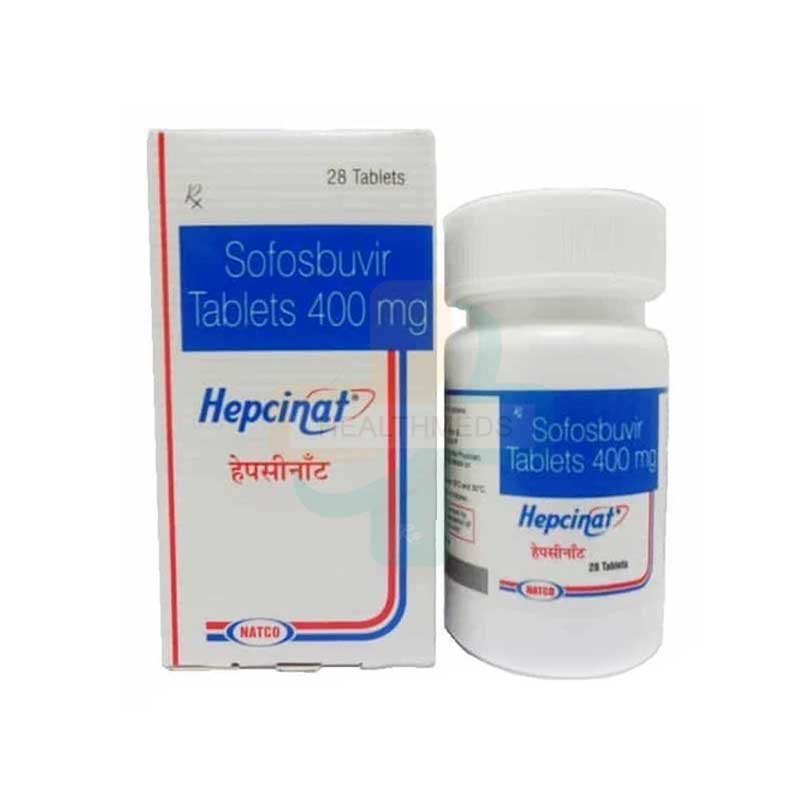


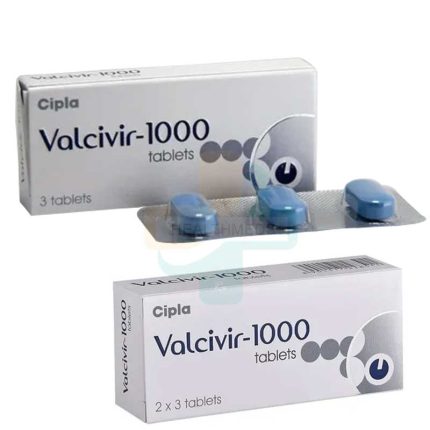
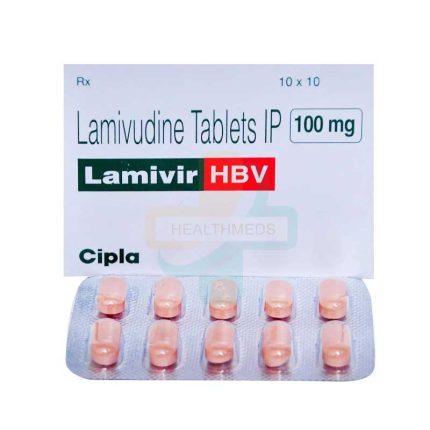
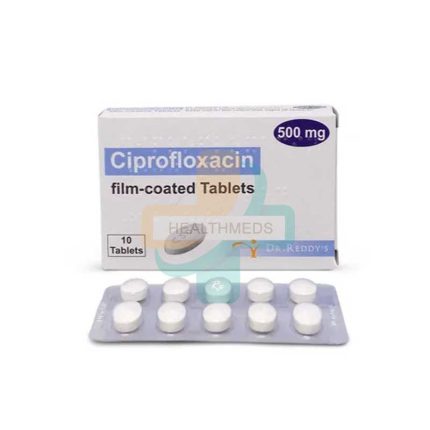
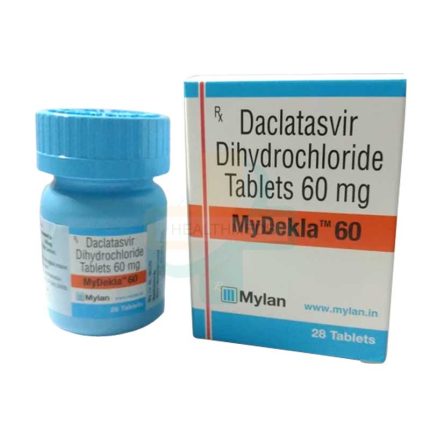
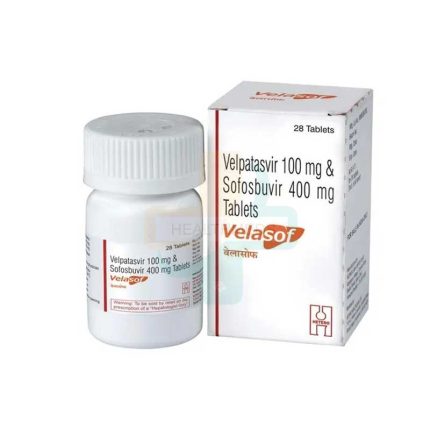
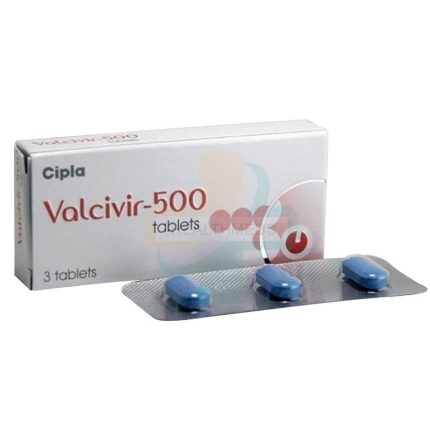
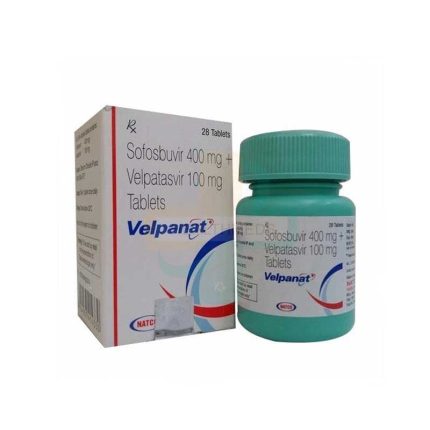
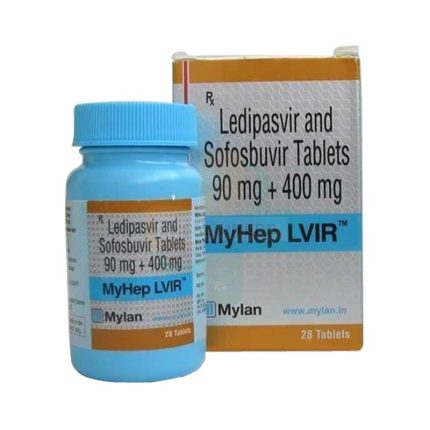

Reviews
There are no reviews yet.